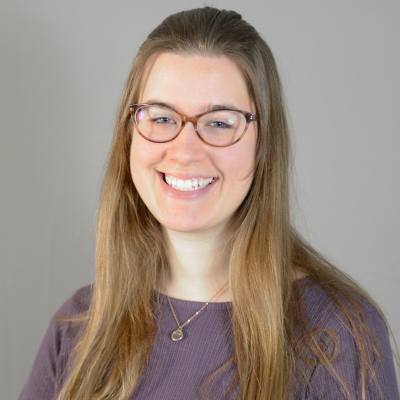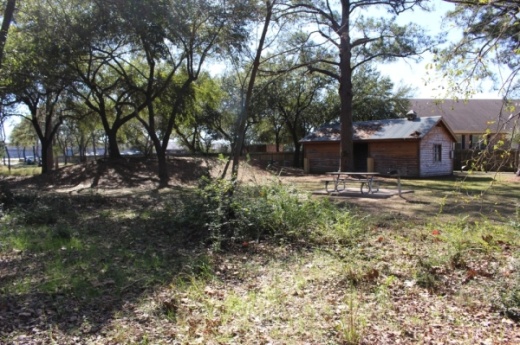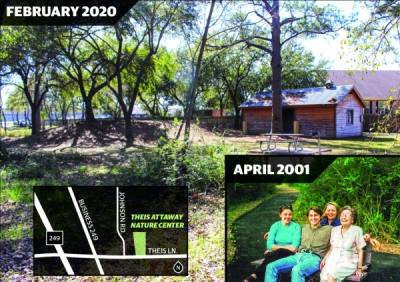Nestled on Theis Lane among businesses, Theis Attaway Nature Center spans 4.62 acres, a gift from the Theis family to the city of Tomball in 2000.
“One of the things we wanted to do with Theis Attaway was of course to preserve that spot for everyone to enjoy. Daddy was just a big-hearted guy, and he loved people,” Martin said.
However, Martin claims the city violated the intent of the gift by razing areas of native vegetation, trimming live oak trees and planting Bermuda grass in summer 2017, since which time little has been restored, she said.
“All of that was the opposite of what the nature center was supposed to be,” Martin said. “It really violated the intent of our gift, it ignored our family agreement, and it created additional problems [in the center’s ecosystem].”
However, Public Works Director Beth Jones said the city engaged environmental consultants in 2018, seeking to improve the nature center. City Manager Rob Hauck said in mid-February he estimates the city’s visioning plan examining how to enhance and maintain the center will be brought to council within a month for direction on how to proceed.
“We want to showcase even more than has ever been done before the significance of the donor family and their donation ... and use this as a place of respite for people and for families and for people of all ages to come and enjoy,” he said.
From donation to damage
After Theis’ death in 1981, the family sold part of the homestead to Walmart in the 1990s, Martin said. Walmart agreed to preserve three of the property’s four 100-year-old live oak trees but destroyed one during construction. To compensate, Walmart paid to develop the nature center, Martin said.The family worked with the city and environmental experts on a plan for the center, which was given to the city in 2000 with conditions, Martin said.
“The conditions were that it be maintained in substantially the same condition as it was given,” she said.
According to a 1998 letter to the city from Martin, the family requested the city monitor aquatic plants, maintain the pond level, leave native grass unmown, avoid rye grass, monitor turtles and fish, maintain bird boxes, avoid pesticides and leave dead trees.
Hauck said the city added a parks foreman in 2017 to focus on improving the city’s green spaces, which had not received adequate attention.
“As part of that, we recognized security issues; we recognized that the center was so overgrown in the center towards the back of the park area that you couldn’t see as you walked the nature trails. What we found is people weren’t really using them because you couldn’t see,” he said.
City staff cleared brush to open up the trails, removing Chinese tallow and Chinese privet, Hauck said. However, Martin claims the city removed Yaupon, a native species.
“I acknowledge that in our efforts to improve our parks spaces as well as the nature center that with all the best intentions in the world, our parks people did go in and open space up and clear underbrush to make those trails more open and safe,” said Hauck, who was serving as assistant city manager at the time.
After hearing from the Theis family, Hauck said the city consulted experts from Harris County, the Bayou Land Conservancy, Spirit Environmental and Talley Landscape Architects.
“What they confirmed is that the vast majority of what was taken out was invasive species,” he said.
Seeking restoration
Hauck said the city has included the donor family in the visioning process; however, Martin said the family was asked for input only after the process had begun. The plan will outline areas for improvement, such as rebuilding a covered bird-watching stand taken down due to its poor condition, using different pavement materials to make the cracked asphalt trails more accessible and capitalizing on educational opportunities, Hauck said.Since 2017, the city has relocated native oak trees from Broussard Park, brought in specialists to manage the pond and installed a stone sign at the center, Hauck said. Budget documents show the city has allocated $50,000 in fiscal year 2019-20, adding to $43,000 from the previous year. As of Feb. 20, about $25,000 had been spent with an additional $19,500 spent from the general budget, city officials said.
Martin said she last heard from the city in October and questions why a visionary plan is needed when the family outlined its intent in the deed.
She said the family desires the center be restored to its prior state, although a specific description of what that would entail could not be given.
“I won’t live long enough to see it back in the state that it was in, but it needs to be put back as much as possible,” Martin said.






